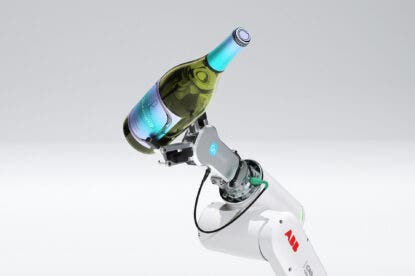Sustainability has become a buzzword, says Erica Landin-Lofving, Vintage Wine Estates’ chief sustainability officer and a founding member of the Sustainable Wine Roundtable (SWR). “But true sustainability—treating our common resources in a manner that keeps them intact for coming generations to use—is key for the survival of a thriving wine world.”
On September 15, the SWR announced its official launch as a global, independent, nonprofit, multi-stakeholder roundtable, founded to create and maintain global standards for sustainability in wine.
“Most research indicates the public is taking an increasing interest in product sustainability credentials and that this influences their purchasing decisions,” Richard Bampfield, MW, said at the press event last month. “Despite all the good work being done, the wine customer still finds it difficult to identify the wines that have been sustainably produced,” he says, and pointed to the plethora of schemes, logos and labels created in the name of environmental awareness.
“Just within our group, we have vineyards or wineries that are certified CSWA, LIVE, SIP, Napa Green, Fish Friendly Farming,” Landin-Lofving says of Vintage Wine Estates’ portfolio of more than 50 U.S. wine brands. “I wouldn’t even say that I, as a full-time, experienced wine sustainability professional at a high level, could tell you the key differences if you put me on the spot. So how do we expect buyers and consumers to understand?”
The SWR’s goal is to benchmark local schemes to a global standard, not duplicate or replicate them, and accredit those that comply. There is no plan for the SWR to create its own seal.
Creating a globalized definition and standard for sustainability in wine across all sectors of the industry, from viticulture and winemaking, through packaging and retail, will be no easy task.
“Developing the standard will take a couple years,” says Chris Wille, sustainable agriculture advisor and a cocreator of the SWR initiative.
Wille would know. In the early 1990s, he worked with the Rainforest Alliance and other non-government organizations (NGOs) in the Sustainable Agriculture Network alongside producers of bananas, coffee, cocoa, tea and other crops.
“We learned that the same environmental, social and economic issues affect all farmers, no matter what they are growing,” he says.
One major difference, Wille notes, is that many crops were or still are under intense scrutiny, subject of years-long campaigns by NGOs and activist groups.
“So far, there are no Greenpeace activists picketing outside wine shops,” he says. “There is increasing consumer and market demands to make wine more ecofriendly, but most of the many sustainability initiatives in wine are happening because viticulturists and viniculturists recognize their responsibility, and also the opportunity.”
“The same environmental, social and economic issues affect all farmers, no matter what they are growing.” —Chris Wille, Sustainable Wine Roundtable
Wille sees potential for change. “Most want to do the right thing, but don’t know what that is or how to go about it. Thus, the need for a global standard created by consensus.”
Many current initiatives are focused on grape growing and wine production. However, “the majority of the carbon footprint of wine is not in the winery, it’s in the packaging and distribution,” Toby Web, founder and executive director of the SWR, said at the September 15 announcement.
To that end, the SWR is looking to involve all sectors of the wine industry in the creation of the standardization: from large wine brands like Vintage Wine Estates, to small land holders and boutique producers, retailers and distributors, as well as leaders of existing environmental organizations.
The SWR will open to general participation in January 2022. Members can choose their level of engagement. SWR founding members will develop best practices and tools for substantiative sustainability measures, while others will be involved in working groups to “explore key issues, starting with some of the most obvious: climate change, packaging, social issues, water,” says Webb.
Landin-Lofving will be on the water board of the roundtable. “We are keen to be champions for water as a key resource in wine production,” she says. “Many sustainability programs do not take water into account, in my view.” She believes this will be an important topic as U.S. West Coast wine regions deal with increasing droughts and wildfires.
Building these guidelines for global sustainability standards will be a slow process for the entire industry. And it needs every community member to buy in.
“The SWR hopes that all stakeholders will join,” says Wille. “Every producer, large or small, along with the retailers, wine shops and distributors, wine-related academics, interested NGOs, associated industries, sommeliers and oenophiles of all vintages.”
Last Updated: June 27, 2023















